What a Fetus Feels in the Womb
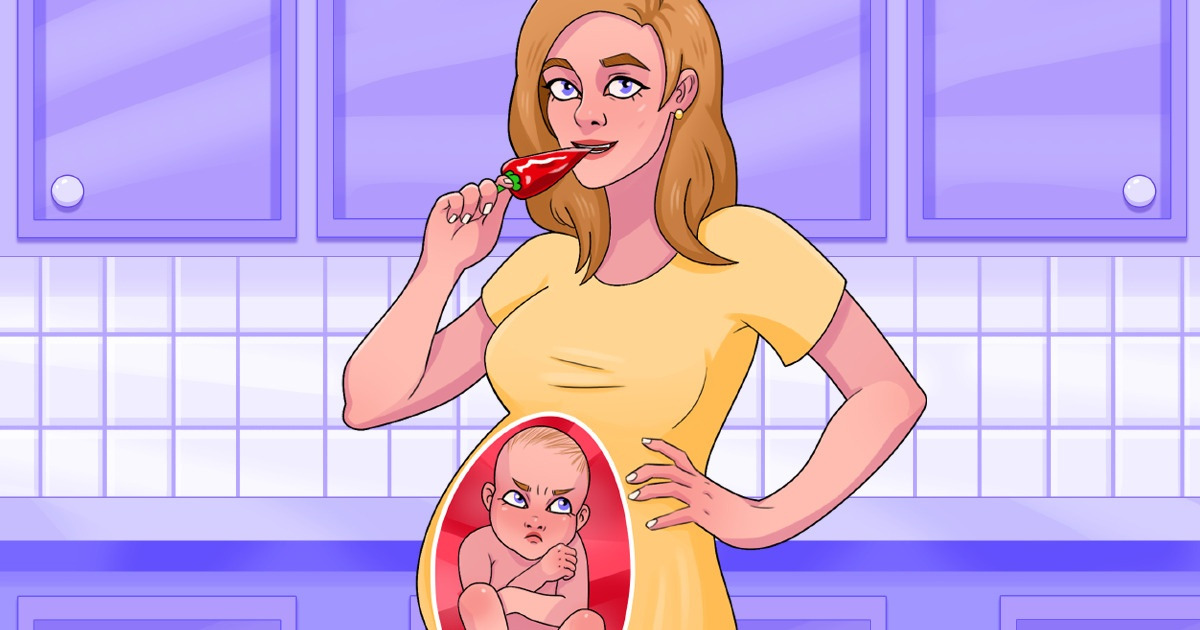
Thanks to the development of technology, scientists were able to find out what a baby feels in the mother’s womb.
5-Minute Crafts found out what exactly a fetus can feel and is going to tell you how the sensations form.
First sensations
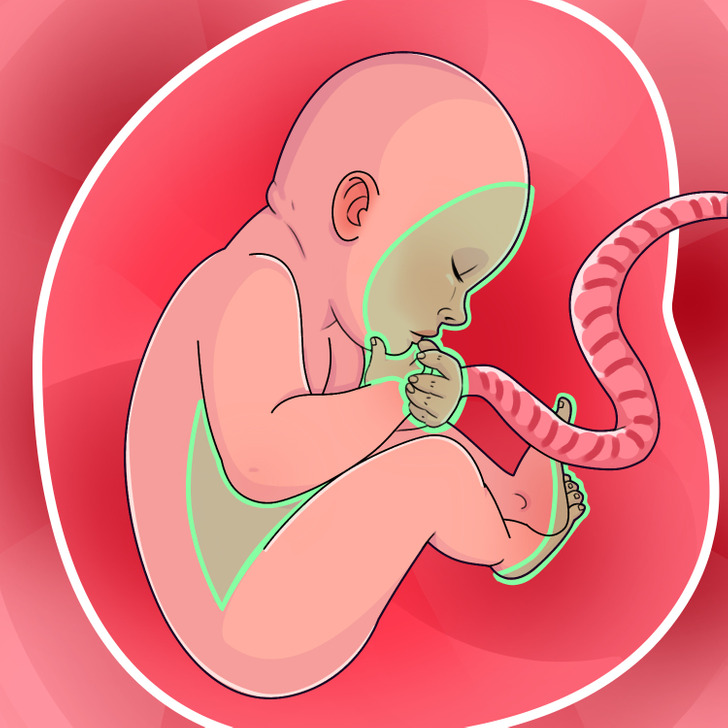
Touch is the first sense that forms in a fetus. Parts of the somatosensory system start to form only a few weeks after conception. By week 8, a fetus develops tactile receptors on the face connected to the growing brain.
During the next few months, the touch receptors start forming everywhere, like on the palms and feet by week 12, and on the belly by week 17. By week 32, all parts of the fetus can feel touch. At this moment, the fetus is so sensitive, it can feel a hair touching its body.
The sensor receptors help develop the entire nervous system, including the brain and the spinal cord, and even the digestive system.
Hearing
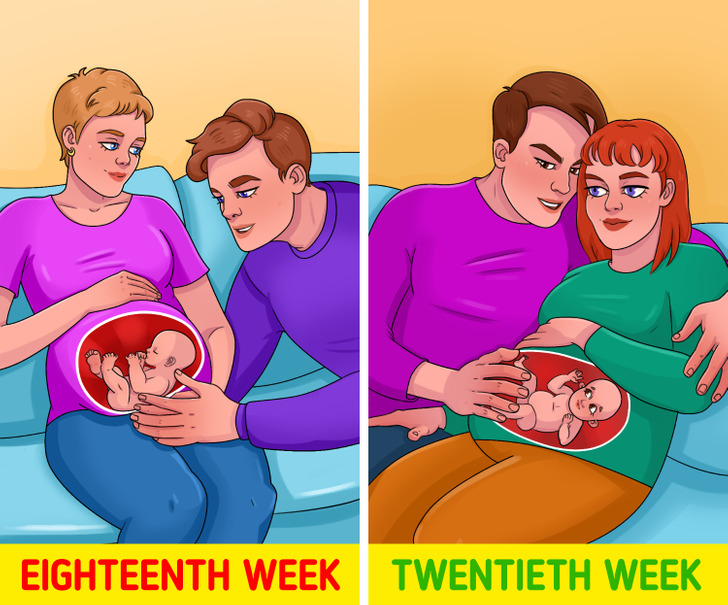
Hearing forms in a fetus during week 18 and starts reacting to sounds during week 20. Loud sounds can cause changes in the heartbeat and motions of the baby.
The womb is not such a quiet place. It’s full of sounds, such as the heartbeat, and the mother’s voice that is even louder than if the baby heard it in real life because it reflects from the bones and the liquids inside her body.
The sounds from the outside are muffled but still quite clear. And low-frequency sounds are louder for a fetus than high-frequency ones.
Motion
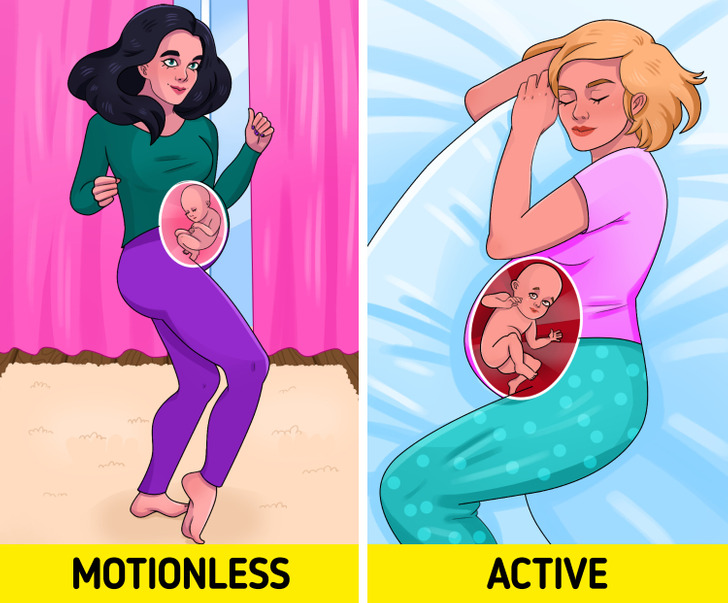
A sense of balance develops in a fetus thanks to its motions in the womb. It doesn’t only swim in the amniotic fluid, but the position of the fetus depends on the motions of the mother. Such motions stimulate the work of the structures in the ear that help the brain process information about the location and motions of the body.
The motions of the mother can stimulate changes in the behavior of the fetus. For example, it’s more active when the mother is not active, and vice versa, when a mother is active, the fetus is usually motionless.
Taste and flavor
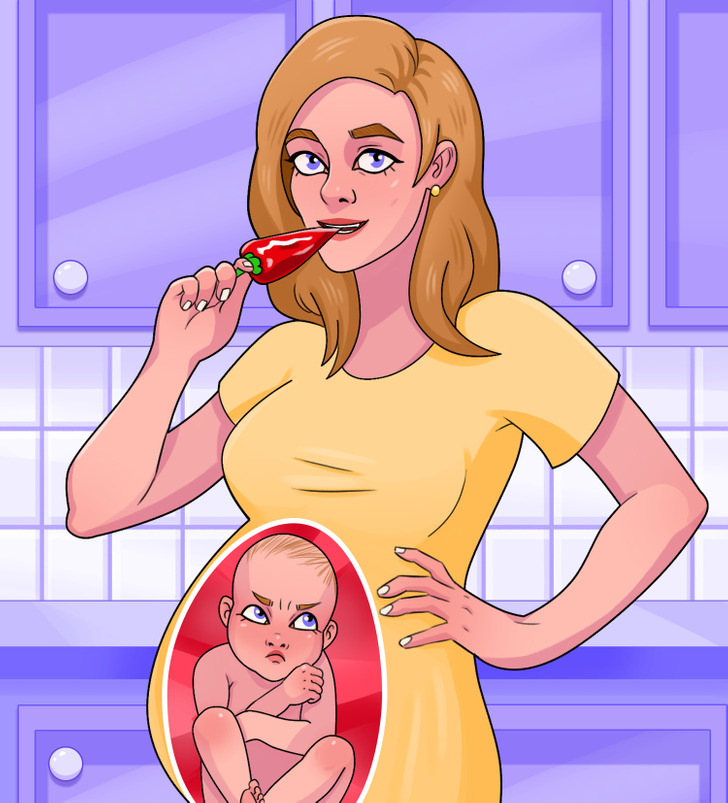
It’s hard to separate the ability to taste and smell because when we lose the sense of scent, we can’t identify the taste either.
From around month 4, the fetus starts nursing through the amniotic fluid, and by the third trimester, it can taste food. According to researchers, experiencing tastes and smells in the womb prepares a child for life after birth.
Vision
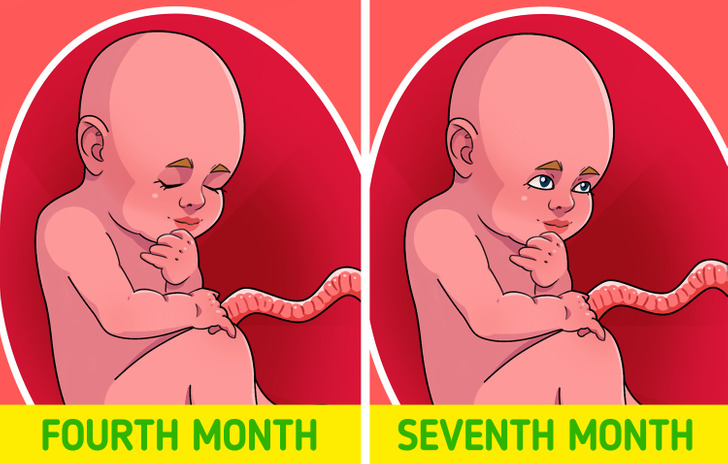
Vision in a fetus starts forming quite early, but it doesn’t fully develop until birth.
The eye pockets form on week 5, and by the fourth month, the eyes are almost completely formed. The eyelids won’t open until the seventh month before the baby starts opening, closing, and even rolling the eyes, testing them. And bright light that gets into the womb can make the fetus more active.